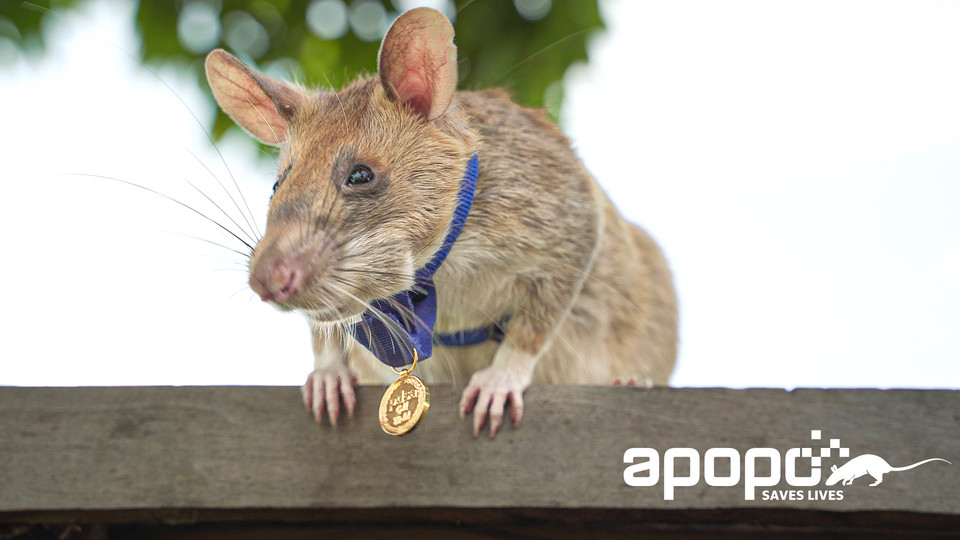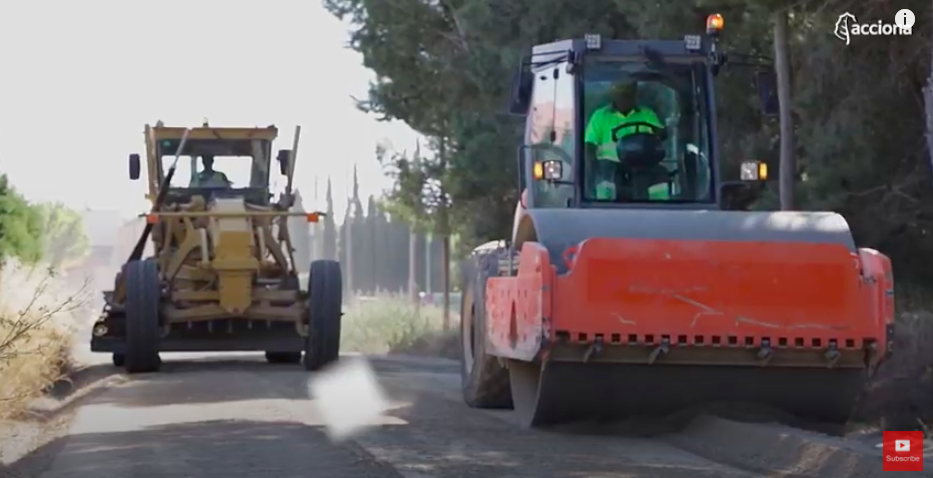Volcanoes are erupting in The Philippines, but on-fire Australia received some welcome rain. The Iran war cries have been called off and The Donald’s military powers are about to be hamstrung by the Senate. Meanwhile, his impeachment trial is starting, and we’re all on Twitter for a front-row seat.
What Could Go Right? Beating AIDS by 2030
Plus: that time we healed the ozone layer, a hero rat, and more progress news from around the world in our weekly newsletter.
This is our weekly newsletter, What Could Go Right? Sign up here to receive it in your inbox every Thursday at 6am. You can read past issues here.
Big thanks to everyone who entered our giveaway! We are in touch with the winner and will share details next week.
On June 5, 1981, the Center for Disease Control (CDC) issued their first report of the disease that would eventually be known as AIDS. In the ensuing 40 years, AIDS has killed millions of people, and nearly 40 million people today live with HIV, the virus that causes AIDS.
While it remains, of course, a momentous public health challenge, we were heartened this week by new data from UNAIDS, the United Nations AIDS program. Since 2010, AIDS-related deaths have fallen 43% worldwide, and new infections have decreased by 30%. Higher-quality treatment starting in 2001 is estimated to have averted 16.2 million deaths, with the number of people on treatment in the last ten years more than tripling. These numbers are representative of dozens of countries meeting or exceeding their 2020 targets, set just four years ago. To zoom in on one region that has seen great success, in the Caribbean, deaths from AIDS halved in the last decade.
Along with the UN, American pandemic czar Anthony Fauci perked up our ears by raising the possibility of ending the AIDS epidemic by 2030. One thing missing from the HIV/AIDS arsenal is an effective vaccine. But there’s a chance the mRNA technology currently saving us all from permanent lockdown could be the answer we’ve been waiting for—and not just for HIV. The pharmaceutical companies have wasted no time: there are currently several mRNA vaccines for HIV in development, and other projects aimed at Nipah, Zika, herpes, dengue, hepatitis, and malaria. Gift yourself 20 minutes to read this article on the mRNA revolution from Wired, which goes into detail why not only the technology, but also the speed and infrastructure of vaccine development, are going through previously unimaginable changes.
HIV/AIDS, as we know, has long impacted the LGBTQ community, and as another, quick acknowledgement of Pride Month—we’ll have more on that next week—did you know that support for same-sex marriage in the US has reached a record high?
Rare is the story that is both substantive good news and adorable. We have one, though, about a gold medal-winning, landmine-clearing African giant pouched rat named Magawa who is about to enter a well-deserved retirement. Magawa and his rat colleagues have cleared 2.4 million square feet of landmines in Cambodia, where three decades of war have left the land crisscrossed with mines and other explosive weapons that kill and maim people, especially in rural areas. Half of the landmine accidents in Cambodia each year involve children.
Magawa works for the nonprofit APOPO, which has operated in Cambodia since 2016. The rats, who are light enough not to trigger the mines, are trained to smell explosives. When they find one, they get to chomp down on a banana. As workers, they are safer than humans—no rats have been killed or injured sniffing out mines—and they are far speedier, too. The amount of land a rat can check in 30 minutes would take a person days.

Magawa, who clears land of mines and other explosive weapons in Cambodia, is about to enter retirement after five years of saving lives.
APOPO’s rats retire when they “no longer greet us eagerly to work anymore, their performance declines, or they show signs of aging,” Lilly Shallom, the nonprofit’s communications manager, told The Progress Network. The organization takes care of their rats until their natural death, which means a leisurely couple of years in retirement enjoying playtime and exercise.
Magawa is an especially good deminer, which is how we got his gold medal for public service from a veterinary charity in the UK. His “performance has been unbeaten, and I have been proud to work side-by-side with him,” said Malen, his handler. “But he is slowing down, and we need to respect his needs.” If you, like us, fell hard for these life-saving rats, you can sponsor one here.
If Willy Wonka had also been an environmentalist, he might’ve come up with this. The Ivory Coast is planning to take the cocoa waste from manufacturing chocolate and turn it into renewable energy. The process works just like a traditional power plant, except it’s run on cocoa bean shells, pod husks, and a liquid called cocoa sweatings instead of fossil fuels. When the “chocolate power plant” is operational in 2023, it will meet the electricity needs of 1.7 million people and potentially reduce greenhouse gas emissions by 4.5 million tons.
Remember when we were really concerned about the hole in the ozone layer? In the new issue of the online magazine Works in Progress, Hannah Ritchie, head researcher at Our World in Data, tells the story of how we healed the ozone layer, what she calls “not only our biggest environmental success,” but “the most impressive example of international cooperation on any challenge in history.”
Before we go, it’s your last chance to sign up for our event tonight! We’ll be discussing the push for a capitalism that is less rapacious and more mindful of its impact on society. RSVP here, and while you wait, here’s a taster from our founder, Zachary, who asks those that benefited massively from the pandemic what their responsibility is to make sure that everybody else gets back on their feet. (Related: in the US, workers are finally gaining leverage over their employers.)
Below in the links section, India bands together in order not to waste any COVID medication, a 1.3 billion-dollar donation to Africa’s vaccine rollout, and more.

The world’s first “paper highway”? The contractor Acciona, which specializes in environmentally-friendly projects, is using paper ash instead of cement to build a new superhighway in Valencia, Spain. Using the paper ash—which is made of burnt waste paper and pulp—not only recycles what would be waste, but also may reduce the construction project’s carbon footprint by up to 75%. Acciona is hoping to scale up their technology internationally.
From us: Last chance to attend live! Tonight (Thursday at 8pm ET), The Progress Network founder Zachary Karabell will speak with Financial Times (US) editor-at-large Gillian Tett about how we can cultivate a different kind of capitalism than the one we have now. RSVP to attend our free event, It Doesn’t Have to Be This Way: Rethinking Today’s Capitalism.
A Muslim man walks into a Texas barbecue joint. What happens next? TPN Member Eboo Patel shares his thoughts on the potential when it comes to businesses positively and proactively engaging religious diversity.
Progress, Please
(Found good news? Tweet at us @progressntwrk or email.)
Other good stuff in the news 💉
- A plan is in the works to make vaccines within 100 days of future pandemics | New Scientist
- Recovered COVID patients in India are sending their leftover meds to those in need | Reasons to be Cheerful
- Mastercard Foundation is donating $1.3 billion to boost Africa’s coronavirus response | The Washington Post
- Fiat plans to become an EV-only automaker by 2030 | Engadget
- Amsterdam is testing electric autonomous boats on its canals | Autoblog
- Connecticut passed a bill that could make prison phone calls free | Worth Rises
- New Jersey passed a bill barring landlords from using criminal records to deny housing | The New York Times
- And Nevada signed a mail-in voting bill into law, rejecting a push by other states to restrict the practice | Nevada Current
- After a slow start, China is now vaccinating at a staggering pace | AP
- The US economic recovery is here, and it’s unlike any in recent history | The Wall Street Journal
- Tech and entertainment behemoths are uniting in the push for climate solutions | Axios
- The NFL pledged to halt the use of “race-norming”—which assumed Black players started out with lower cognitive function (we’re not sure how this was ever a thing) | AP
- Is pro-democrary activism in Iraq paying off? | The Christian Science Monitor
- How to escape the happiness guilt trap | The Atlantic
TPN Member Originals 🧠
- El Salvador is set to adopt bitcoin as legal tender, marking a milestone in monetary history | Avik Roy
- What we can learn from King and Reagan about bridging our patriotic divide | John Wood Jr.
- Ezra Klein on the future of meat consumption (hint: it’s leaning meatless) | Fareed Zakaria
- James Carville on how Democrats self-sabotage by focusing more on sounding virtuous than persuading voters | Yascha Mounk
- As the US turns a pandemic-recovery corner, is there an opportunity to start over? | Scott Galloway
- How to restore human connection: in conversation with Scott Barry Kaufman | Noreena Hertz
- One way to frame the political drama in Israel: Bibi is Trump and the Israeli “change coalition” is Biden | Thomas L. Friedman
- Are we moving out of a 50-year stagnation and into a new era of meaningful innovation? | Tyler Cowen
- Why shaking up Big Oil could be a pyrrhic victory | Jason Bordoff
- On grit and its link to high achievement | Angela Duckworth
- Why are we terrified of low-level risks, yet we find the biggest risks hard to grasp? | R.P. Eddy
- + non-member add: Ten principles for fixing K-12 education | Greg Lukianoff
Upcoming Events
It Doesn’t Have to Be This Way: Rethinking Today’s Capitalism | Zachary Karabell and Gillian Tett | June 10
Beyond Who, What, When, Where, and How—Exploring Constructive Journalism | Ulrik Haagerup | June 14
Why Mobility is Destiny | Parag Khanna | October 13
We’re Hiring!
We are looking for a good-humored, progress-minded social media guru to join our fully remote team. This person would run our Twitter, Facebook, and LinkedIn accounts, and update our site daily with progress news. This position is part-time, with flexible working hours. Social media experience is required and a background in journalism is preferred. Perks of the job include reading a lot of progress news—a guaranteed mood-booster! If this sounds like you, please send a resume and a short note about why you’re interested to hello@theprogressnetwork.org.
Until next time, keep reaching for the stars, or maybe just try being really, really nice to Mr. Bezos. 🚀


